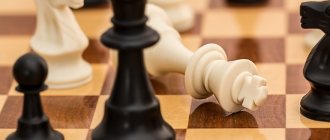Lately I have really come to love being honest with myself. Because it's incredibly effective.
There was a blog post - “Starting from the truth.” At some point it dawned on me that the truth and lying to oneself, illusions, are like hard asphalt and a swamp. From the first you can push off and jump, rise HIGHER than you are now. In the second, you sink deeper and deeper - lower than you are, and often dragging others along with you.
And then I fell in love with asking myself questions that required honest answers.
At first it was difficult, sometimes painful, unpleasant. But then I got used to it, and things went well.
As a result, there is a minimum of internal dialogue, the absence of being stuck in some story for years, and movement in the direction you need.
First of all, this is a topic about “Crowns” in the terminology of Evolution - complexes of psychoprotections that hide the truth from us and lead us into illusions where we are more significant than we really are. About modesty, as the opposite of them.
Only by being modest, without pride (not holding on to your real and imaginary achievements and inflated importance), can you ask yourself ANY questions, even the most unpleasant ones, head-on. Otherwise it's scary. Suddenly the truth will be unpleasant. It's better not to start.
I remember, after reading Evolution for about three years, I sat down and wrote “life without crowns” - all past and current key events, especially personal relationships. Not how it always seemed to me, but how it really was and is. Of course, at the level that is understandable to me, it is still difficult to reflect if psychodefenses have always been there, and quite strong, and still exist. This is a very exciting activity. Be sure to do it if you want. It is the theories of Evolution, which provide clear tools, that make it possible to effectively introduce self-honesty into practice.
It was a huge relief and a release of a lot of energy. There was no longer any need to carry with you all this burden of stories where you are supposedly on a horse, taller, grander, smarter and stronger than others. But in fact, none of this happened, or they didn’t want you, or both weren’t very passionate, or something else like that, but not the way everything was “combed” in your favor earlier.
This is freedom - to see more truthfully your significance for this or that person, to see your dependencies, where you cling to someone or something, your devaluation, your stickiness, your egocentrism, infantilism, your hunger, the roots of recurring problems. See where you don't respect other people. Where you don't respect yourself. Where did you act like a fool? Remove your important “how could he”, “how dare he” about different situations or people, remove your insults. Finally see other people - their interests and their desires. See your real, undistracted emotion for some reason. See how bad or good you are in certain areas of your life.
After that, you can do something about all this.
Otherwise, you are doomed to wander around the three pines for years. Over and over again, experience situations that drain you, in which “everything is somehow wrong,” in which you “seem” that you are not loved, in which you are weak, but you don’t understand what you need to do to become strong.
But we must understand that seeing the truth means being prepared for anything. And not only to what you want, but to close yourself off from the rest.
“100 keys to understanding where our energy and time flow” - download my checklist for free and change your life!
If you now have a difficult situation, a problem, depression, an energy hole - you need to admit all this to yourself. Evolution has one of the very first articles - “5 steps to get out of the ass” (energy hole). And here it is:
“Step 1. Realize that you are fucked.
Despite the fact that the ass is always quite cramped, stuffy and dark, many deny that they are in it.
Some even insist that this is safety and comfort, and everyone who lives differently suffers.
That is, realizing your frustration is already half the battle, but usually it is difficult, since the person has already forgotten how it can be otherwise and cannot recreate and imagine another state on a sensory level.
However, until you understand that this is an ass, you won’t take a step out of it.” (C) Evolution
What is Honesty - essay
Honesty is one of the most important qualities of a person. This is the ability to always admit that you are wrong and be sincere in any situation.
Everyone has been taught since childhood that lying is bad. But over time we forget about this, because once we lie, we will continue to do so. To undertell, to embellish, and thus simply to lie, these are ordinary things in our everyday life. We think that it will be easier and simpler for us. But, over time, everything secret becomes an obvious and clearly expressed lie for everyone.
You need to be able to express your thoughts honestly and this is the only way to solve this or that situation. An honest person always inspires trust in the people around him. After all, they do not see negative qualities in him, but only kindness and sincerity.
You can rely on such a person and have a good time together. Knowing that he will never discuss you or say something behind your back. There are very few such people and it is very lucky to have such a friend.
I believe that lying is bad, first of all, for yourself. After all, after lying to someone dear to you or even just a friend, you feel morally depressed.
You will not be able to remember all your lies and someday you will misspoke. You will most likely feel ashamed, and you will want to fix everything and return it, but people will stop trusting you.
You will lose what is most precious, but only some omissions and secrets. And it’s very difficult to regain people’s trust. Having caught you in a lie once is enough to stop communicating with you altogether.
The main thing in a person is honesty, when he is trusted, and he can be himself. Honest people are highly valued in our gray world, do not become one of these evil and selfish people who have forgotten about moral values.
I respect honest people and try to be a truthful and polite person. But this is not as simple as it seems from the outside; you need a lot of strength and nerves, which are often lacking. Try to make this world a little kinder and more honest.
Communication by email
Many bosses put off reprimands, ignoring employee antics, which over time leads to emotional collapse. If you are afraid that you will not be able to control yourself, then move the discussion to the Internet. Emails are impersonal, and you can always erase what you wrote.
Louis Vuitton releases protective face shields for VIP clients for $961
In Moscow, a number of stores were fined and closed for violating the mask regime
In India, old buses are being converted into food trucks
What do I understand by the word Honesty?
Everyone has their own understanding of honesty. As for me, this is a person who does not deceive himself first, and then those around him.
An honest person is never afraid to tell the truth, no matter what it is, and does not start gossip behind his back. He respects those around him, regardless of whether they are close to him or a stranger.
He sincerely loves his family, values his reputation and trust in him, values what he has and never pretends, portraying himself as better than he really is. The one who is called “honest” always works conscientiously and will never be ashamed of himself. This is a small part of the qualities of an “honest person”, but, as for me, they are the most important and true.
Since childhood, we were taught that lying is wrong, but we were never told why. A person can lie for good purposes, but never thinks about the consequences. The consequences can be very different, because someday the secret becomes obvious.
Soon, the person who lied loses confidence in himself. Those close to him will not be able to trust him, since he has already lied. Of course, it’s one thing if a person didn’t say something, and quite another if he lied to a loved one, for example a friend. After this, it is unlikely that this person will be able to be a true friend.
Everyone also treats lies differently. For some, lying is like going to the store. Some people, having lied, then rethink everything, and their conscience torments them. They want to talk about their actions, but they are afraid of the reaction of the deceived person. Someone takes it lightly that a person lied to him. He doesn’t even imagine that this could go on for the rest of his life.
I believe that you need to tell the truth, no matter what it is. Some people can speak bluntly, and without thinking about the consequences, thereby hurting a person. In such cases, before speaking, you should think and then present it in a softer form. Perhaps it’s worth preparing the person first if this is something really serious.
You just have to put yourself in this person’s shoes and think what you would do if they lied to you. Therefore, it is worth thinking about the feelings of another person when you lie to him. Don't think that it will just go away. After all, there will always be another person who will lie to you too. That is, all your lies will soon return to you.
You can be confident in an honest person and you can trust him. It's more difficult with deceitful people. They may say that this will not happen again, but there is no guarantee. He will also be able to lie or betray for the second and third time. You need to immediately identify such people and try to communicate with them as little as possible.
In any case, honest people are treated differently. After all, few people would want their friend to lie to them.
It's worth striving to be honest. However, honest people are not always understood, especially those who love to lie. It is necessary to instill in a child from early childhood that lying is bad. Words alone are not enough and therefore it is worth explaining everything specifically and even giving specific examples.
Don't be ashamed
Try to understand what the employee's motives were. People rarely harm themselves or others intentionally; there is a reason behind every action. You should try to find out what it is and solve the problem.
In any case, empathy is always more productive than blame and guilt. Start the conversation with a small conversation on an abstract topic and do not be led by emotions. You can't be angry and brooding at the same time.
Essay on Honesty
At all times, there have been such concepts as love, loyalty and friendship. Among them, the word honesty stands out as a bright spot, which to some extent is a kind of basis for these categories.
Honesty is one of the components of the moral side of a person. It is associated with the ability to express thoughts and feelings directly, without confusion, whatever they may be. These are motives that come from the depths of the soul. Thoughts that are fueled by integrity and truthfulness.
Where there is honesty, there is also loyalty, integrity and conscience. This concept should accompany a person throughout his life. If such a pattern is violated, then deception comes into force, for which sooner or later one becomes ashamed.
Lack of honesty leads to doubts and a person's split opinion. Each of us can stumble at least once in our lives. Then comes acquaintance with this quality. Having experienced awkwardness or fear, a person sees two ways - lies or sincerity. Deception prevents you from leading a healthy lifestyle.
Joy, respect from others, trust fill the heart when there is nothing to hide, there is no stone in one’s bosom. Dishonesty is, first of all, self-deception, which weighs heavily on the soul. To avoid omissions and excuses, you need to learn to admit your own wrongness and develop this quality of character in yourself.
If we strive for kindness and decency, then honesty will certainly become a mentor in enriching the moral side of a person. It becomes an assistant in acquiring other equally important qualities such as straightforwardness, self-confidence, lack of boasting, which save a person from weaknesses, help to acquire willpower, and be successful in every endeavor.
In any area of our life, a person experiences the influence of honesty from the outside or encounters it personally, earning respect or being criticized by others. Thus gaining experience, we give a correct assessment of ourselves, choosing the right actions in the future.
Empathy
Take the time to step into the other person's shoes and figure out who is to blame for the situation. Your compassion makes it less likely that an employee will hide the truth. Also be careful when choosing the place and time to talk.
For a conversation, it is best to choose a neutral territory that is protected from prying ears and eyes. Choose your words carefully and be mindful of your body language. Surely you are aware of your emotional triggers. As soon as you feel like one of them is triggered and you're losing your temper, take a break.
The problem of honesty in literature
Text by N.S. Leskova about Selivan seemed interesting to me. The writer raises an important moral problem in it - honesty. The narrator had to spend the night in the house of Selivan, whom everyone considered a robber and thief (prev. 1).
When she and her father discovered that they had forgotten their aunt’s box of money, they thought that the “robber” was already far away. Imagine their surprise when Selivan returned the box. He didn’t even take any money from there (sentences 17–18).
The author finally convinces us of Selivan’s integrity when he refuses the reward. Thanks to this incident, everyone was convinced that the hero was an honest person. The writer's position is clear to me.
Honesty is one of the important personality qualities. And your actions can change the attitude of society. I agree with the writer that honest people deserve praise and respect.
I will prove my point by turning to works of fiction. Let's turn to the novel by A.S. Pushkin's " The Captain's Daughter ". Grinev, having broken free, lost a hundred rubles to Zurin in billiards. Perhaps Zurin was wrong, because he saw that in front of him was a very young man. He even deliberately got the young man drunk and praised his performance.
The next morning, Grinev realized the irresponsibility of his behavior, but he repaid the debt, despite Savelich’s resistance. It seems to me that the hero acted honestly. Reflecting on this problem, I remember one parable. A tramp found a wallet in the market containing one hundred gold coins.
Being an honest man, he gave his find to the lost one, hoping for a reward. However, the merchant accused him of stealing some of the money. The dispute was decided by a judge who gave all the gold to the poor man. He explained this by saying that the wallet that the poor man found contained one hundred gold pieces, and the one that the merchant lost contained two hundred. This means, the judge decided, someone else lost this wallet.
Thus the poor man was rewarded for his honesty. Thus, the problem of honesty is relevant at any time. And there have always been people who acted honestly, and others who wanted to appropriate for themselves what belonged to others. The choice always remains with the person.
Justice
Before you reprimand, you need to remember why you punished other employees. If others got away with such behavior, then there is nothing left to do but turn a blind eye to this situation. Otherwise, people may start saying that you have “unwanted” employees. Justice is the same for everyone, and there can be no exceptions here.
Found a violation? Report content
Stage 2 - Leo
But for some people this stage ends. Through pain and disappointment we come to the overthrow and revaluation of old values. This is the stage of overcompensation. At this stage, we can be deliberately rude if we have previously restrained aggression for a long time, indulge in drunkenness, if we have not allowed ourselves even a glass of wine for a long time.
This stage is also characterized by extremes, but you are already thrown in the opposite direction.
What happens to inner chaos? Despite the fact that behavior may become less restrained and more chaotic, it still has a certain ideological axis, a certain philosophy of denial. You live by denying what you believed in, so you still rely on it.
What happens to neurosis? Even though we are pretty stormy and tossed in different directions, some therapeutic work still takes place here. We release the colossal tension accumulated as a result of long-term self-restraint and following other people's ideas. We begin to become acquainted with our shadow qualities, which have been suppressed and not recognized for a long time. We feel the triumph of the freedom that has opened up before us, even if this freedom is still only conditional, and the released energy brings a lot of destruction.










